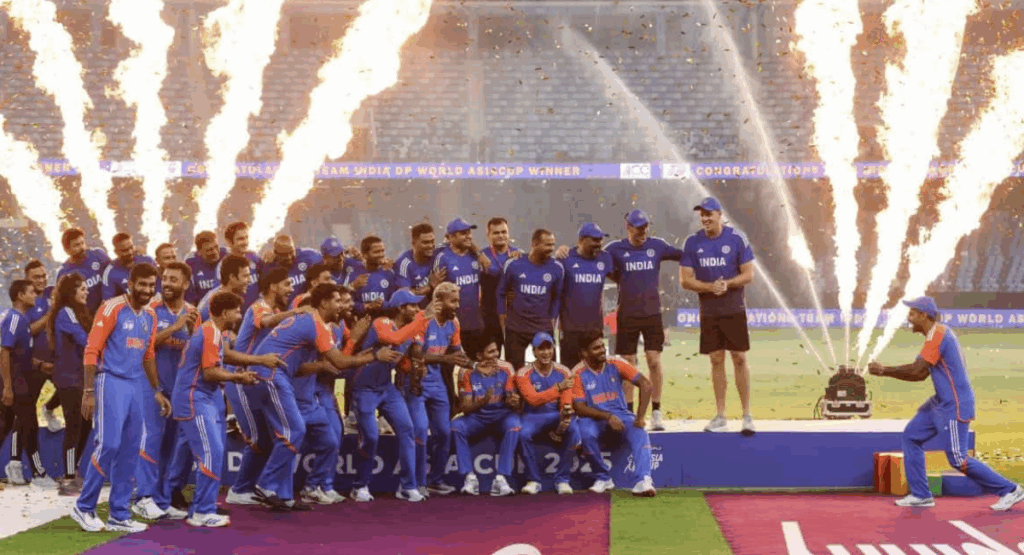
In a rare and unprecedented move, India refuses to accept the Asia Cup trophy during the delayed presentation ceremony. This bold action immediately grabbed global attention and sparked heated discussions among cricket fans, analysts, and officials. While cricket usually serves as a bridge between nations, this event turned the sport into a platform for political expression.
The controversy emerged after India defeated Pakistan in a thrilling Asia Cup final. Normally, the victory would have been celebrated with jubilant cheer. However, during the trophy presentation, the Indian team refused to receive the trophy from Pakistan Cricket Board (PCB) Chairman Mohsin Naqvi. This unexpected action surprised many and shifted the focus from cricketing excellence to political tension.
According to BCCI Secretary Devajit Saikia, the Indian team made the decision deliberately. Since Naqvi holds a prominent political position in Pakistan, the team felt it would be inappropriate to accept the trophy from him. Saikia emphasized that India’s refusal did not disrespect Pakistan’s cricketing talent but instead reflected the current political sensitivities between the two nations. Consequently, this clarification explained the reasoning behind the move, though debates continued to swirl.
The reactions came swiftly and varied widely. On one hand, Pakistan’s captain, Salman Agha, criticized India, claiming the act disrespected cricket and undermined the spirit of the game. On the other hand, many Indian fans and cricket analysts supported the BCCI’s decision. They argued that it represented a principled stance, acknowledging the political realities without belittling Pakistan’s achievements.
Furthermore, this incident highlighted the close relationship between sports and politics. Traditionally, the Asia Cup provides a platform to celebrate regional talent and strengthen camaraderie. However, this event revealed how quickly international cricket can intersect with national sentiment. Consequently, what should have been a joyful celebration turned into a discussion about diplomacy, pride, and sportsmanship.
Additionally, the delayed presentation itself fueled the controversy. Fans flocked to social media, sharing opinions, memes, and analyses. Analysts debated whether incidents like this would affect future cricketing encounters between India and Pakistan. Moreover, commentators questioned how teams and boards could balance political sensitivities with maintaining the integrity and spirit of the sport.
In conclusion, India refuses to accept the Asia Cup trophy, creating a landmark moment in cricket history. This action demonstrates how international relations can influence sporting events and decisions on the field. While some may consider it controversial, others see it as a calculated and principled stance. Ultimately, the incident reminds the cricketing world that the sport often mirrors broader political realities, while still captivating millions with its excitement and unpredictability.

